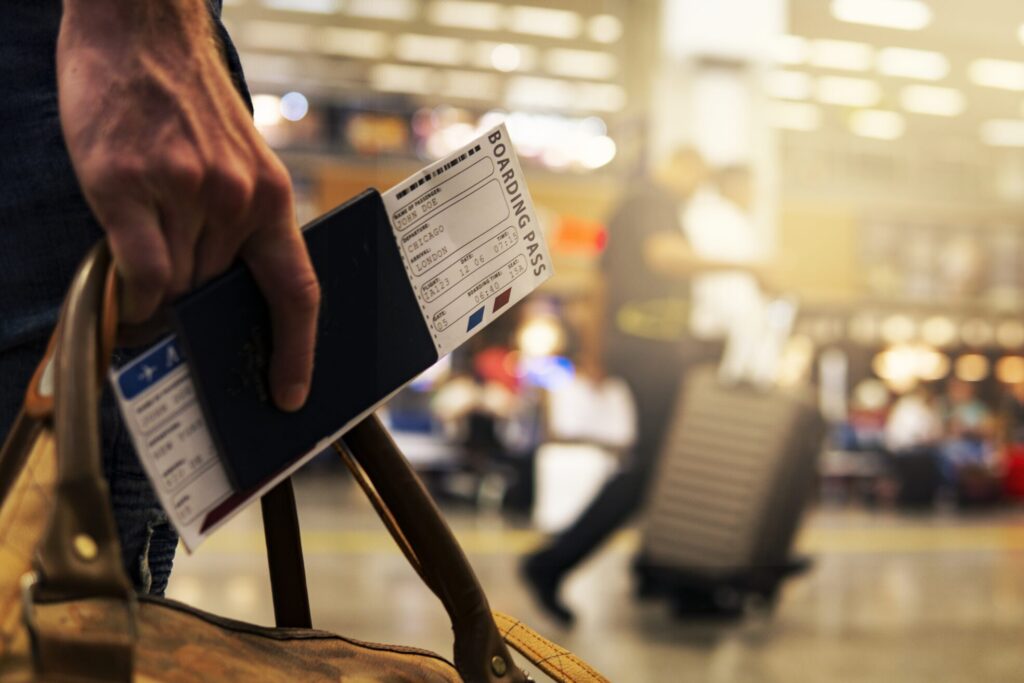
Skift Take
Turning international travel into “a walk in the park” may take time, but wouldn’t it be nice to skip those endless queues at airport gates, airline counters, immigration, and security checks? DigiYatra has made domestic travel a smoother ride. If rolled out for international travel, we could all breathe a little easier!
India is actively working on expanding the DigiYatra facility for international travel. The DigiYatra Foundation expects to start prototype testing on e-passport based enrollment from next month, the CEO of DigiYatra Foundation, Suresh Khadakbhavi, said recently at an event in Saudi Arabia.
What Is DigiYatra? This digital initiative, aimed at revolutionizing airport check-ins, uses a mobile app that allows passengers to use facial recognition as a boarding pass.
When Was This Launched? Launched on December 1, 2022, at three airports — New Delhi, Varanasi, and Bengaluru — DigiYatra has swiftly expanded its footprint, now operating in 14 airports across India and set to launch in another 14 next month.
Now, DigiYatra for International Travel
The next frontier for DigiYatra is international travel.
The integration of chip-enabled e-passports into the app is a crucial step, enabling verifiable credentials for foreign travelers.
Speaking at the Future Aviation Forum in Riyadh last week, Khadakbhavi said the prototype testing will progress significantly in the coming months, although the DigiYatra Foundation must collaborate with the Bureau of Immigration and the Ministry of External Affairs, indicating a potentially lengthy process.
IATA’s One-ID
The DigiYatra Foundation, co-owned by the Airports Authority of India (AAI) and private airports, also plans to align with International Air Transport Association (IATA)’s One-ID initiative for global interoperability. This initiative, backed by the IATA, representing around 320 airlines in over 120 countries, seeks to streamline passenger journeys through biometric-enabled identification.
Travelers prioritize speed and convenience and are increasingly embracing biometrics, according to IATA’s 2023 Global Passenger Survey.
Croatia, the Netherlands and Canada are testing digital travel. Finland last year launched the world’s first digital travel document pilot program at Helsinki Airport.
“Passengers want technology to work harder, so that they spend less time ‘being processed’, standing in queues. And they are willing to use biometric data if it delivers this result. But we need cooperation across the value chain and with governments to make it happen with secure technology that is available today,” said Nick Careen, IATA’s senior vice president for operations, safety and security.
DigiYatra Vision
DigiYatra’s vision extends beyond airports as it looks to facilitate hotel check-ins and provide hassle-free access to public places.
Over the past year, more than 20 million users have experienced DigiYatra, and with its forthcoming availability at 28 airports, the service will cover approximately 90% of India’s flying population, according to Khadakbhavi.
With the use of face as a single token, passengers can just walk through every process giving them an experience of a “walk in the park,” he said.
Khadakbhavi said a key feature of DigiYatra is its emphasis on self-sovereign identity, which ensures that passenger data is not stored centrally. “The self-sovereign identity base is something which perhaps people can easily adopt,” he explained, emphasizing the need for bilateral agreements to share credentials between nations.
He cited the European Union’s digital identity framework as a successful example of this concept.
Challenges and Privacy
Despite its advancements, DigiYatra faces challenges, particularly in educating passengers about the privacy and security of self-sovereign identity—a complex but crucial aspect of the system. Recently, DigiYatra performed what it calls “a significant backend upgrade,” and asked users to install a new app. This had led to speculation about a potential data breach.
However, the foundation clarified that the upgrade was in preparation for the upcoming expansion to additional airports.
Digi Yatra’s old app had over 4.5 million users while according to the foundation the new app already has over 2 million users.
Looking ahead, DigiYatra plans to implement fully homomorphic encryption, a feature that ensures third parties cannot misuse data shared with airports. Explaining the homomorphic encryption, Khadakbhavi said that once the airport uses data shared by the passenger no one else would be able to open the data for a second time, preventing further misuse.
“If you want to look at an implementation of self-sovereign identity at scale and volume, we are the biggest,” Suresh asserted, highlighting the system’s growing adoption rate, which stands at around 30-40% at major airports, with some Indian airports seeing up to 50% usage.
In the next decade, DigiYatra envisions a single-process airport where passengers can walk straight to the boarding gate, with all processes handled seamlessly in the background. “This future is achievable with the use of technology; however, we need to change our perspective to fully utilize it,” he said.
